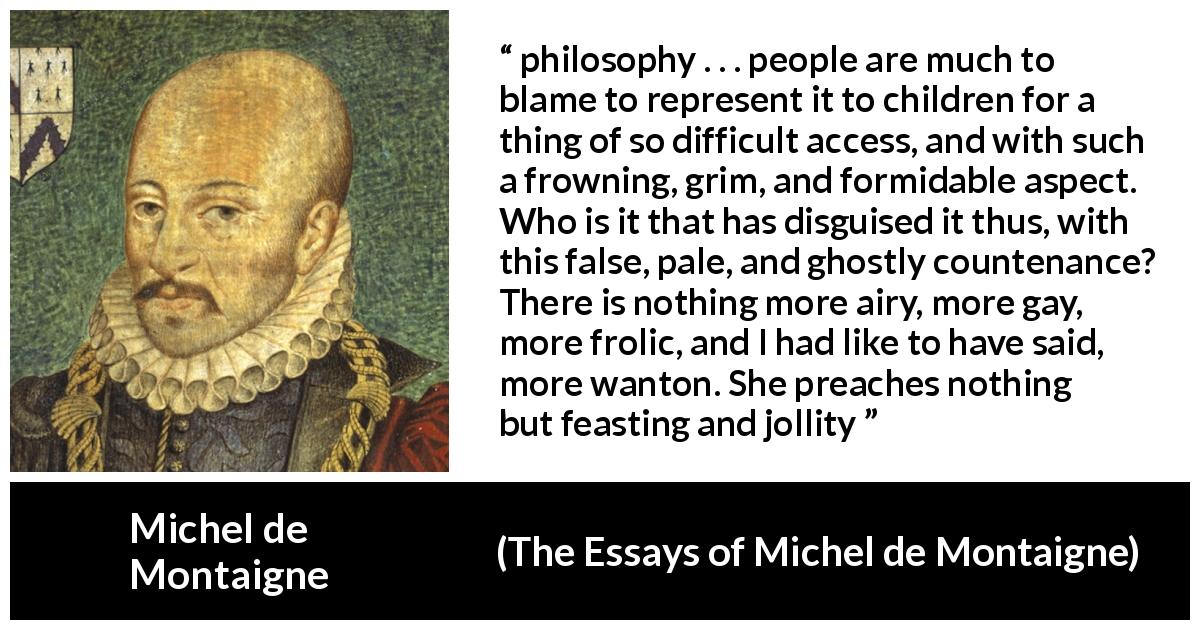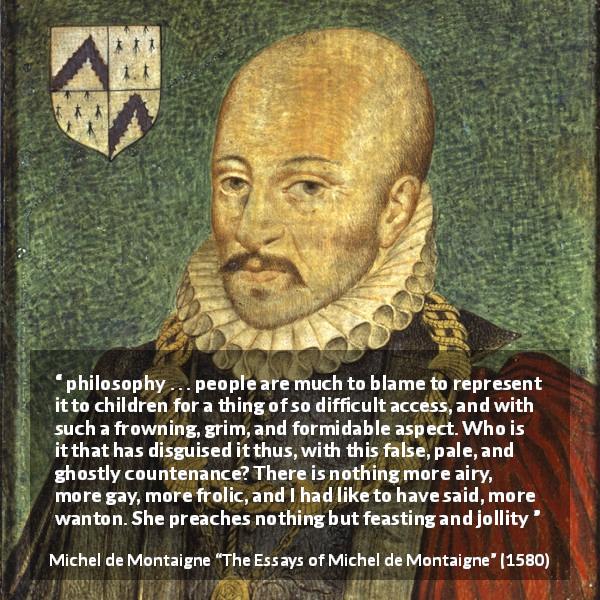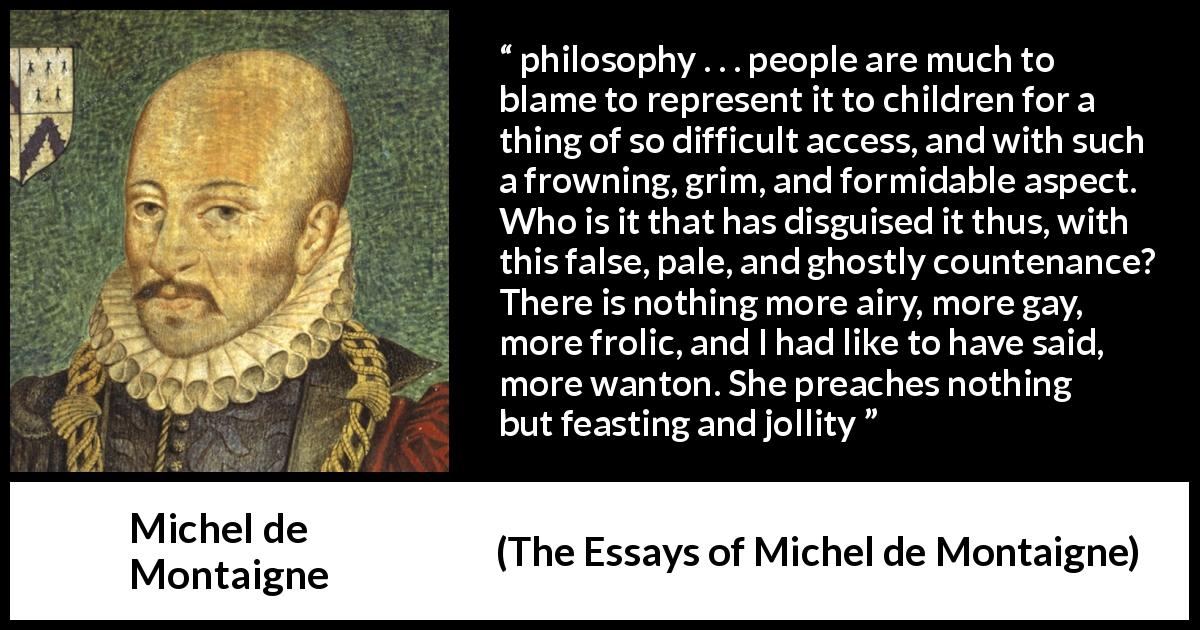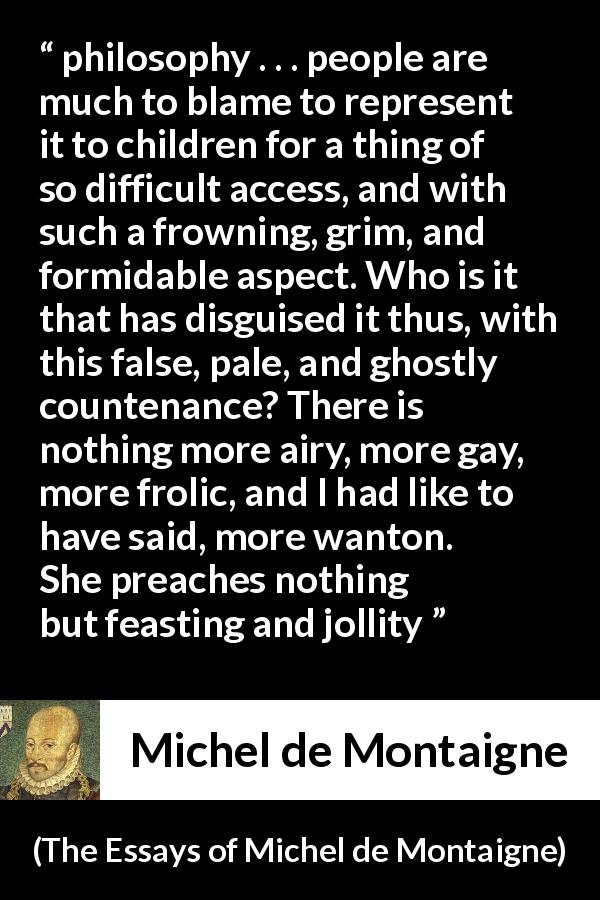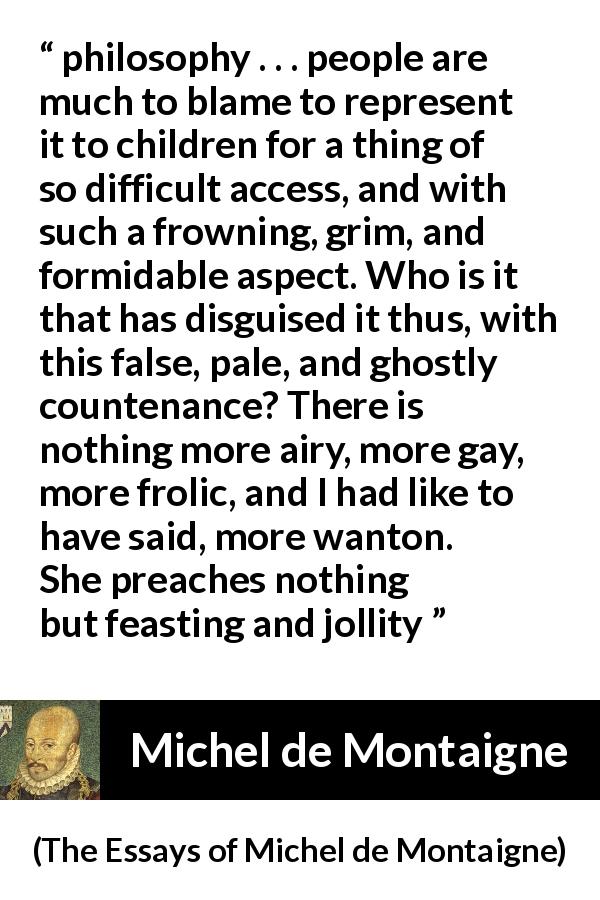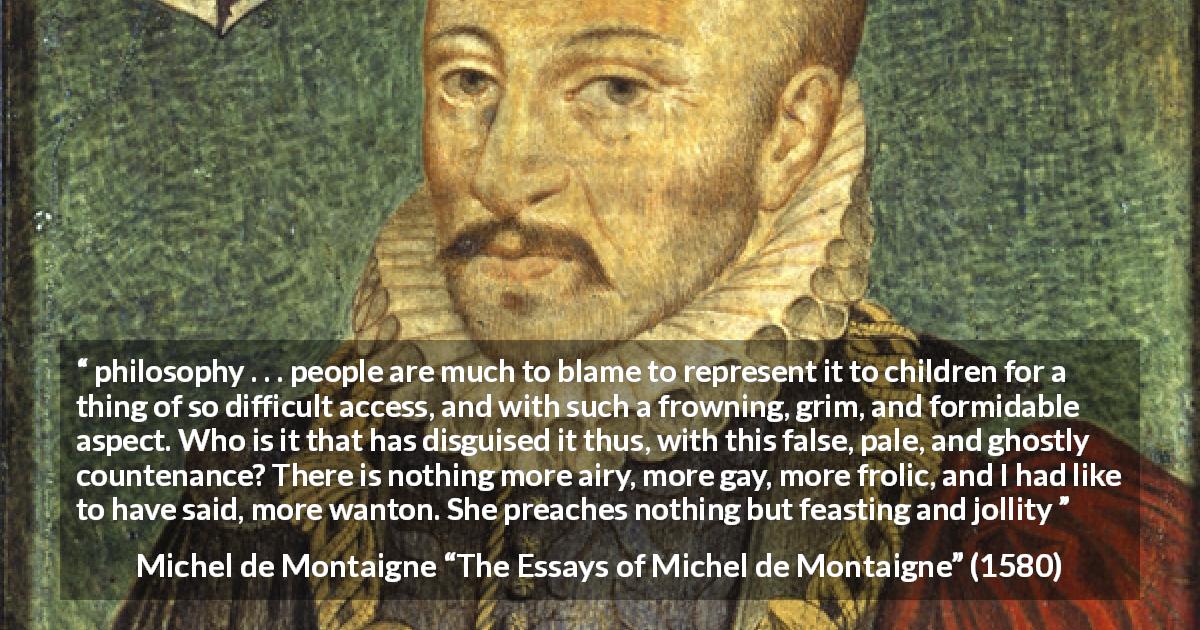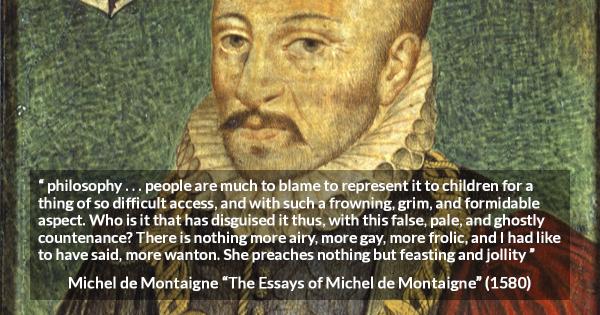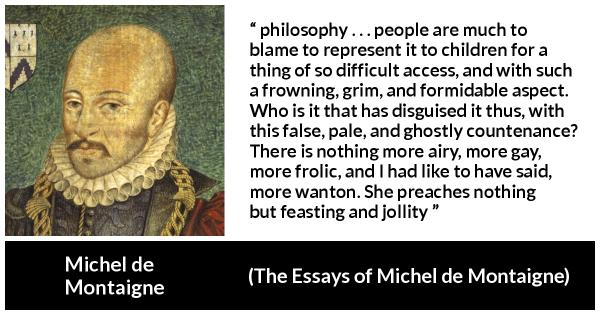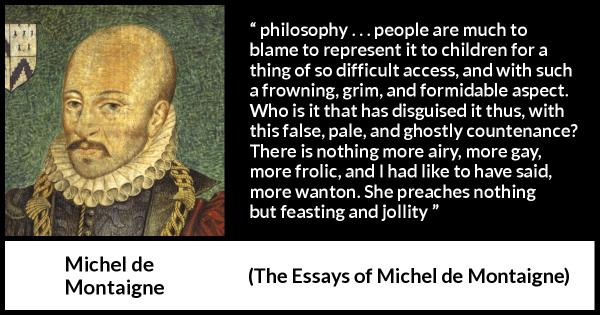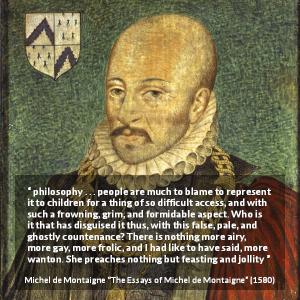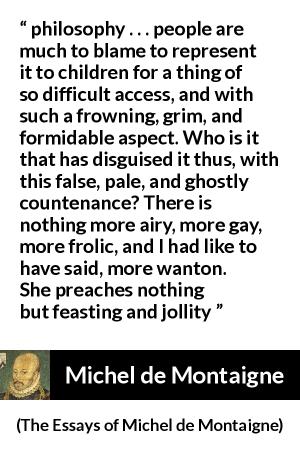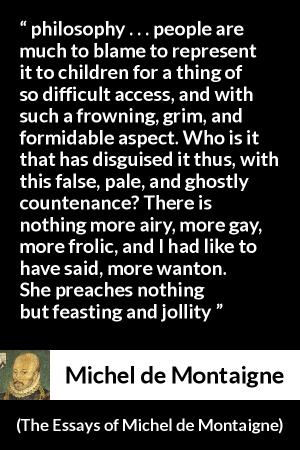“ philosophy . . . people are much to blame to represent it to children for a thing of so difficult access, and with such a frowning, grim, and formidable aspect. Who is it that has disguised it thus, with this false, pale, and ghostly countenance? There is nothing more airy, more gay, more frolic, and I had like to have said, more wanton. She preaches nothing but feasting and jollity ”
Michel de Montaigne, The Essays of Michel de Montaigne (1580). copy citation
| Author | Michel de Montaigne |
|---|---|
| Source | The Essays of Michel de Montaigne |
| Topic | philosophy joy access |
| Date | 1580 |
| Language | English |
| Reference | |
| Note | Translated by Charles Cotton |
| Weblink | http://www.gutenberg.org/files/3600/3600-h/3600-h.htm |
Context
“'Tis a thousand pities that matters should be at such a pass in this age of ours, that philosophy, even with men of understanding, should be, looked upon as a vain and fantastic name, a thing of no use, no value, either in opinion or effect, of which I think those ergotisms and petty sophistries, by prepossessing the avenues to it, are the cause. And people are much to blame to represent it to children for a thing of so difficult access, and with such a frowning, grim, and formidable aspect. Who is it that has disguised it thus, with this false, pale, and ghostly countenance? There is nothing more airy, more gay, more frolic, and I had like to have said, more wanton. She preaches nothing but feasting and jollity; a melancholic anxious look shows that she does not inhabit there. Demetrius the grammarian finding in the temple of Delphos a knot of philosophers set chatting together, said to them,—[Plutarch, Treatise on Oracles which have ceased]—«Either I am much deceived, or by your cheerful and pleasant countenances, you are engaged in no, very deep discourse.»”
source
